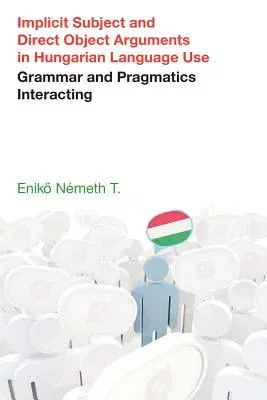Eniko Nemeth
(Author)Implicit Subject and Direct Object Arguments in Hungarian Language Use: Grammar and Pragmatics InteractingHardcover, 24 November 2018

Qty
1
Turbo
Ships in 2 - 3 days
In Stock
Free Delivery
Cash on Delivery
15 Days
Free Returns
Secure Checkout

Part of Series
Pragmatic Interfaces
Print Length
220 pages
Language
English
Publisher
Equinox Publishing (UK)
Date Published
24 Nov 2018
ISBN-10
1781795959
ISBN-13
9781781795958
Description
Product Details
Author:
Book Format:
Hardcover
Country of Origin:
US
Date Published:
24 November 2018
Dimensions:
23.62 x
16.26 x
2.03 cm
ISBN-10:
1781795959
ISBN-13:
9781781795958
Language:
English
Location:
Sheffield
Pages:
220
Publisher:
Series:
Weight:
521.63 gm